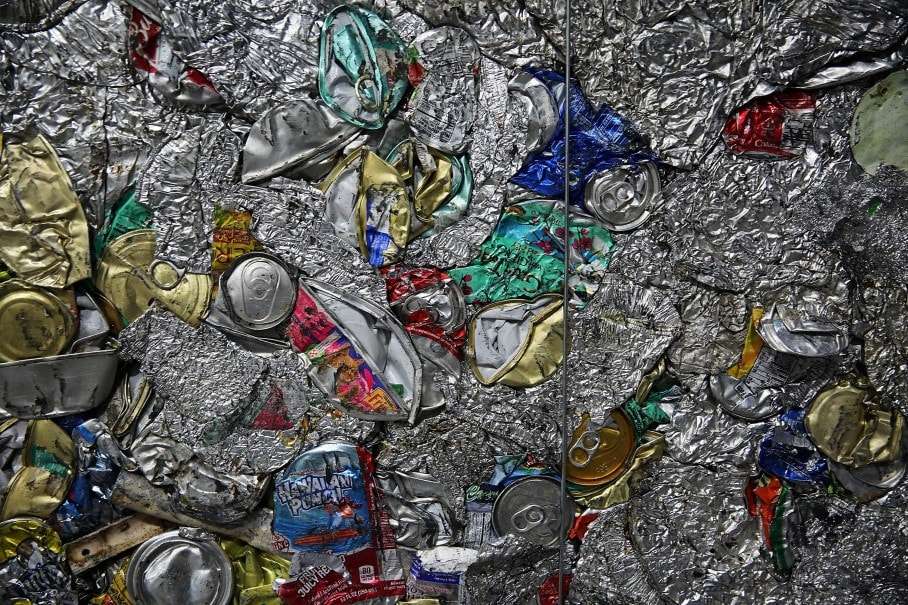The Volokh Conspiracy
Mostly law professors | Sometimes contrarian | Often libertarian | Always independent
State court partly blocks Seattle trash recycling/composting requirements, because of risk of unconstitutional searches

Seattle requires residents to separate recyclable and compostable material from other trash and to not put any such material into a normal trash can; and the Municipal Code and its implementing regulations authorize "visual inspection" by trash collectors to make sure the rules are followed (plus a $1 fine per violation). Yesterday's Bonesteel v. City of Seattle held that any searches of trash bags aimed at enforcing the rule are unconstitutional and therefore struck down some parts of the ordinance and regulations:
b. As of January 1, 2015, the Director of Seattle Public Utilities shall establish a program of placing educational notices or tags on garbage containers with significant amounts of food waste and compostable paper.
c. As of July 1, 2015, any violation of this section by residential curbside or backyard customers shall result in an additional collection fee of $1 per can collection….
1) Significant amounts of recyclables in the garbage for residential cans mean that any of the following, alone or in combination, make up more than 10 percent by volume of the contents of a garbage can, as determined by visual inspection by an SPU inspector or contractor: recyclable paper, recyclable cardboard, glass or plastic bottles and jars, aluminum or tin cans, yard waste, food waste and compostable paper.
2) SPU will place educational notices or tags on garbage containers with recyclables including food waste and compostable paper during the period January 1, 2015 through June 30, 2015.
3) As of July 1, 2015, residential garbage cans set out for curb/alley or for backyard collection that contain significant amounts of recyclables, including food waste and compostable paper, are subject to an additional collection fee of $1 per can per collection.
Now you, learned reader, are doubtless wondering, "But what about California v. Greenwood, in which the U.S. Supreme Court held that Fourth Amendment protections don't generally apply to garbage?" And of course you're right to so wonder; Greenwood concluded that:
[R]espondents exposed their garbage to the public sufficiently to defeat their claim to Fourth Amendment protection. It is common knowledge that plastic garbage bags left on or at the side of a public street are readily accessible to animals, children, scavengers, snoops, and other members of the public. Moreover, respondents placed their refuse at the curb for the express purpose of conveying it to a third party, the trash collector, who might himself have sorted through respondents' trash or permitted others, such as the police, to do so. Accordingly, having deposited their garbage "in an area particularly suited for public inspection and, in a manner of speaking, public consumption, for the express purpose of having strangers take it," respondents could have had no reasonable expectation of privacy in the inculpatory items that they discarded.
But I will see your Greenwood and raise you State v. Boland (Wash. 1990), in which the Washington Supreme Court held that a provision of the Washington Constitution (which reads, "No person shall be disturbed in his private affairs, or his home invaded, without authority of law") provided extra protection beyond the federal constitution, and did require warrants and probable cause for searches of garbage:
Boland's trash was in his can and sitting on the curb in expectation that it would be picked up by a licensed garbage collector. This leads us to the conclusion that it falls squarely within the contemplated meaning of a "private affair." While it may be true an expectation that children, scavengers, or snoops will not sift through one's garbage is unreasonable, average persons would find it reasonable to believe the garbage they place in their trash cans will be protected from warrantless governmental intrusion.
The same rule that bars searching trash for evidence of drug crimes (as in Boland), the court held yesterday, also bars searching trash for evidence of recycling and composting rule violations. And though the court acknowledged that, "If food waste or compostable paper is in plain view" - i.e., doesn't require opening bags to inspect them - "trash collectors may observe it in the course of routine garbage collection, and take enforcement action based on their observations," the court concluded that "[t]he City could not explain how inspectors can compute the 10 percent limit without searching through a resident's garbage bags. Because "The enforcement provisions of the ordinance and implementing rule, on their face, allow trash collectors to open and search the contents of a resident's garbage bags, even when food waste or compostable paper is not in plain view," the court held, the entire rule should be struck down.
I'm not sure facially invalidating the rule - whether or not it's practically constitutionally enforceable - is quite right. And I can imagine an argument that searching materials turned over for disposal to determine whether they fit the rules about what qualifies for disposal might be different from searching such materials for evidence of unrelated crimes. But in any event, I thought this was an interesting decision, worth passing along.



Show Comments (0)